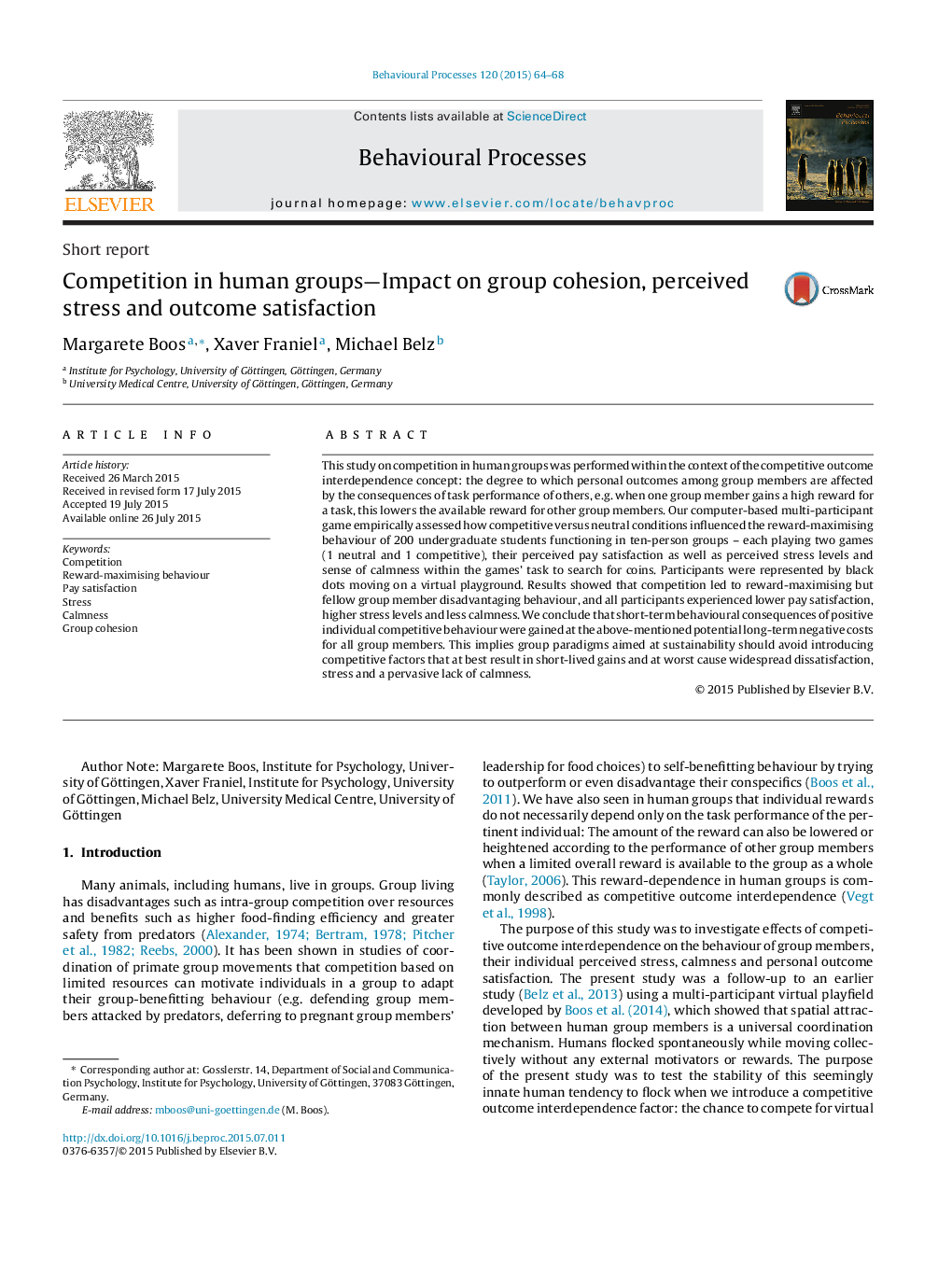| Article ID | Journal | Published Year | Pages | File Type |
|---|---|---|---|---|
| 2426494 | Behavioural Processes | 2015 | 5 Pages |
•We use a computer-based multi-participant game to investigate competition in a standardised setting.•Competitive conditions lead to reward-maximising and peer-disadvantaging behaviour.•Competitive conditions lead to lower pay satisfaction, and higher stress levels.
This study on competition in human groups was performed within the context of the competitive outcome interdependence concept: the degree to which personal outcomes among group members are affected by the consequences of task performance of others, e.g. when one group member gains a high reward for a task, this lowers the available reward for other group members. Our computer-based multi-participant game empirically assessed how competitive versus neutral conditions influenced the reward-maximising behaviour of 200 undergraduate students functioning in ten-person groups – each playing two games (1 neutral and 1 competitive), their perceived pay satisfaction as well as perceived stress levels and sense of calmness within the games’ task to search for coins. Participants were represented by black dots moving on a virtual playground. Results showed that competition led to reward-maximising but fellow group member disadvantaging behaviour, and all participants experienced lower pay satisfaction, higher stress levels and less calmness. We conclude that short-term behavioural consequences of positive individual competitive behaviour were gained at the above-mentioned potential long-term negative costs for all group members. This implies group paradigms aimed at sustainability should avoid introducing competitive factors that at best result in short-lived gains and at worst cause widespread dissatisfaction, stress and a pervasive lack of calmness.
